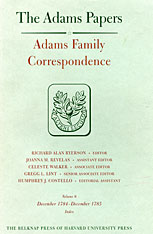
“I cannot O! I cannot be reconcil’d to living as I have done for 3 years past… Will you let me try to soften, if I cannot wholy releave you, from your Burden of Cares and perplexities?” So begins Abigail Adams’s correspondence to her husband in these volumes: a plea to end their long separation, as John Adams represented the United States in Europe while Abigail tended to family and farm in Massachusetts, and passed on to John crucial political information from Congress.
In October 1782, the Adams family was as widely scattered as it would ever be, with young John Quincy Adams in St. Petersburg, John at The Hague, and Abigail in Braintree with her daughter and younger sons. With the summer of 1784, however, Abigail would have her fondest wish, as most of the family reunited to spend nearly a year together in Europe. As the Adams family traveled, and as the children came of age, so their correspondence expanded to include an ever larger and more fascinating range of Cultural topics and international figures. The record of this remarkable expansion, these volumes document John Adams’s diplomatic triumphs, his wife and daughter’s participation in the cosmopolitan scenes of Paris and London, and his son John Quincy’s travels in Europe and America. These pages also welcome Thomas Jefferson, who soon became one of Abigail’s closest friends, into the family correspondence. From the intimacies of the children’s education, sentimental and worldly, to the details of the firm friendship between Abigail and Madame Lafayette, to the grand drama of Edmund Burke and William Pitt the Younger debating in Parliament, the contents of these letters draw an incredibly rich picture of international life in the 1780s and an incomparable portrait of America’s first family of politics and letters.

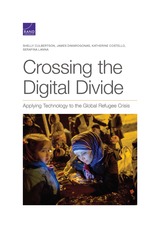
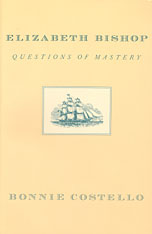

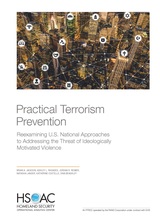
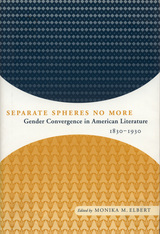
Although they wrote in the same historical milieu as their male counterparts, women writers of the 19th- and early 20th-centuries have generally been "ghettoized" by critics into a separate canonical sphere. These original essays argue in favor of reconciling male and female writers, both historically and in the context of classroom teaching.
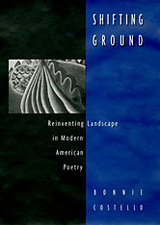
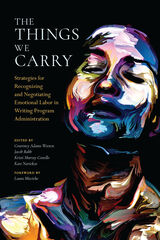
The book is broken into three sections: one emphasizing the WPA’s own work identity, one on fostering community in writing programs, and one on balancing the professional and personal. Chapters written by a diverse range of authors in different institutional and WPA contexts examine the roles of WPAs in traumatic events, such as mass shootings and natural disasters, as well as the emotional labor WPAs perform on a daily basis, such as working with students who have been sexually assaulted or endured racist, sexist, homophobic, and otherwise disenfranchising interactions on campus. The central thread in this collection focuses on “preserving” by acknowledging that emotions are neither good nor bad and that they must be continually reflected upon as WPAs consider what to do with emotional labor and how to respond. Ultimately, this book argues for more visibility of the emotional labor WPAs perform and for WPAs to care for themselves even as they care for others.
The Things We Carry extends conversations about WPA emotional labor and offers concrete and useful strategies for administrators working in both a large range of traumatic events as well as daily situations that require tactical work to preserve their sense of self and balance. It will be invaluable to writing program administrators specifically and of interest to other types of administrators as well as scholars in rhetoric and composition who are interested in emotion more broadly.
READERS
Browse our collection.
PUBLISHERS
See BiblioVault's publisher services.
STUDENT SERVICES
Files for college accessibility offices.
UChicago Accessibility Resources
home | accessibility | search | about | contact us
BiblioVault ® 2001 - 2024
The University of Chicago Press









